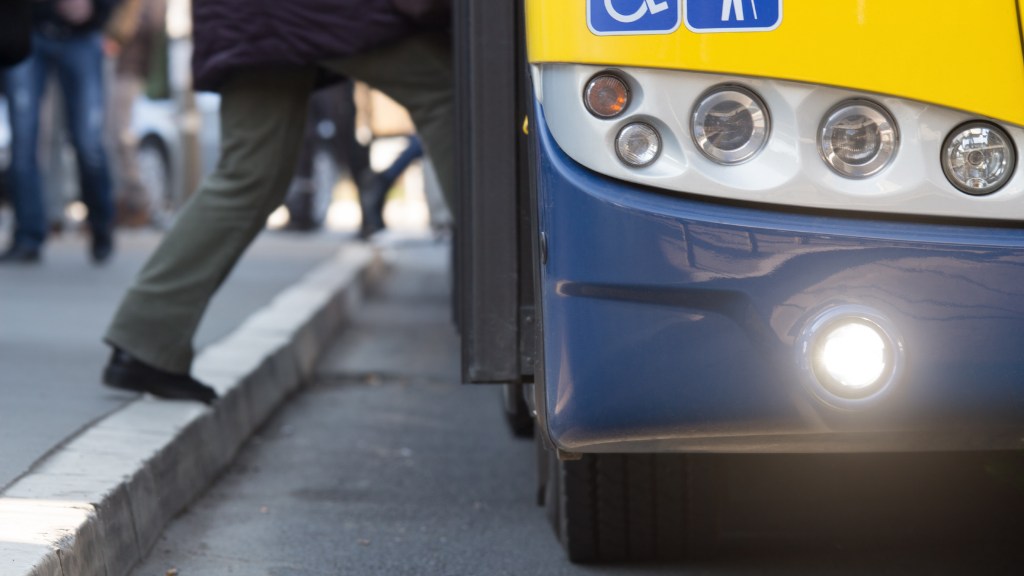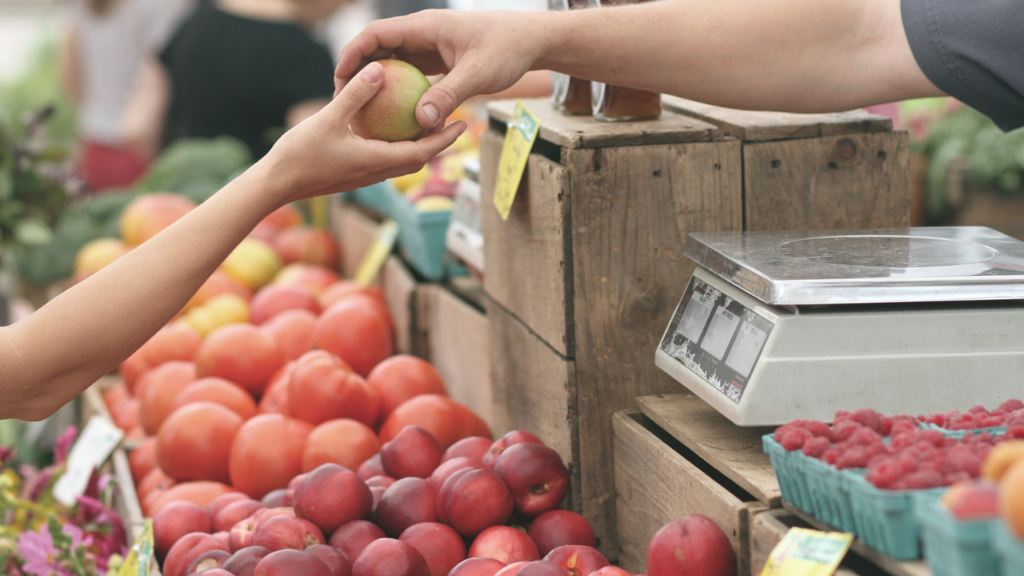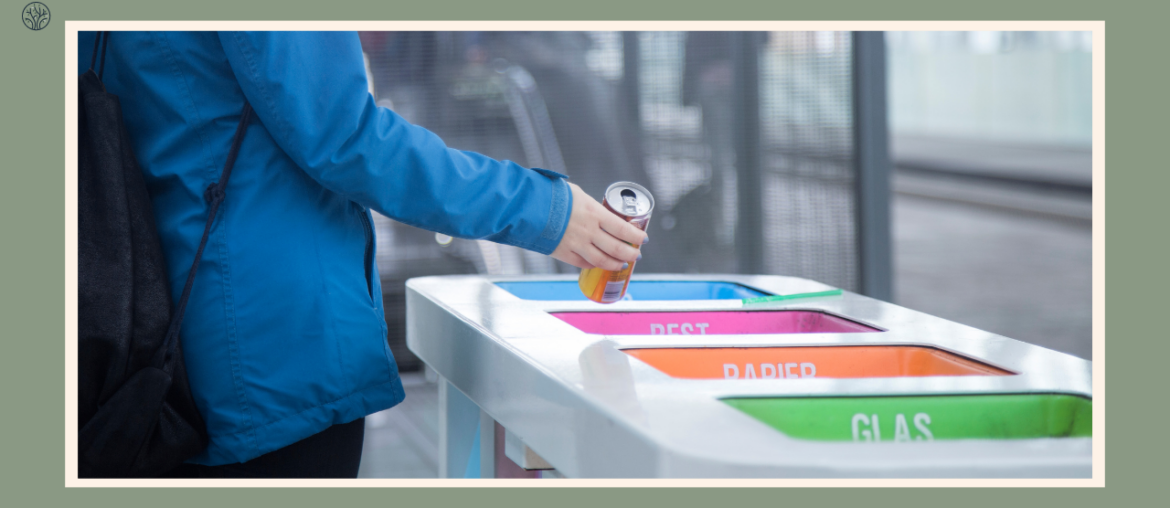Whether it’s paper waste from tickets and brochures, plastic water bottles from convenience stores, or food packaging from restaurants, we, travelers often end up generating more trash than we would at home. So what can we do to minimize our waste and recycle as much as possible while traveling? Here are some ideas that might help:
Pack A Zero-Waste Travel Kit

Before you hit the road, make sure you pack some essentials that will help you avoid single-use items and reduce your waste.
A zero-waste travel kit is a collection of reusable and eco-friendly products that you can use instead of disposable ones. Here are some items that I always bring with me:
1. Reusable water bottle
This is a must-have for any traveler, as it saves you money and prevents you from buying plastic water bottles that end up in landfills or oceans. You can refill your bottle with tap water (if it’s safe to drink) or filtered water stations that are available in many airports, hotels, and public places. Some countries even have drinking water fountains on the streets, like Italy and France. If you’re not sure about the water quality, you can also use a water filter or purifier to make it safe to drink.
2. Reusable coffee mug
If you’re a coffee lover like me, you probably enjoy having a cup of joe on the go. But instead of getting a disposable cup from a coffee shop, why not bring your own mug? Not only will you reduce your paper waste, but you might also get a discount or a free refill from some places. Plus, your coffee will stay hot longer in an insulated mug.
3. Reusable cutlery set
When you eat out or order takeout, you might be given plastic forks, spoons, knives, or chopsticks that are meant to be thrown away after one use. To avoid this, bring your own reusable cutlery set that you can wash and use again and again. You can choose from different materials, such as bamboo, wood, metal, or silicone.
4. Reusable straw
If you like drinking smoothies, juices, or cocktails with a straw, skip the plastic ones and opt for a reusable straw instead. You can find straws made of bamboo, metal, glass, or silicone that come with a cleaning brush and a case. Some straws are even collapsible or foldable for easy storage.
5. Eco-friendly shopping bag
Whether you’re buying souvenirs, groceries, or clothes, avoid using plastic bags and bring your own eco-bag for shopping. You can use a tote bag, a backpack, or a foldable bag that fits in your pocket. Some eco-bags are also made of recycled materials or organic cotton which are better for the environment.
6. Reusable food containers
If you like to cook your own meals or pack leftovers from restaurants, bring some reusable food containers that you can use instead of plastic wrap or foil. You can use glass jars, metal tins, silicone bags, or beeswax wraps that are durable and easy to clean.
Choose Eco-Friendly Accommodation And Transportation

Another aspect of traveling that affects your waste generation and recycling is your choice of accommodation and transportation. By choosing eco-friendly options that reduce your environmental impact and support recycling efforts, you can make your trip more sustainable and responsible.
Choose green-certified accommodation
There are many organizations and platforms that certify or rate hotels and other types of accommodation based on their environmental performance and practices. Some examples are Green Key, Green Globe, and TripAdvisor’s GreenLeaders. Look for these labels or badges when you book your accommodation online or ask the staff about their green policies when you check-in.
Seek out recycling facilities and services
Some hotels and other types of accommodation offer recycling facilities and services for their guests. For example, they may have recycling bins in the rooms or common areas, provide reusable water bottles or coffee mugs for guests to use, collect used soap bars or toiletries for donation or recycling, or offer laundry services that use eco-friendly detergents or methods. Ask the staff about these options when you check in or look for signs or information in the rooms or common areas.
Embrace low-carbon transportation
When you travel from one place to another, try to use public transportation or low-carbon alternatives as much as possible. For example, you can take buses, trains, subways, trams, or ferries instead of cars or taxis. You can also use bikes, scooters, skateboards, or walk instead of driving short distances. These options not only reduce your carbon footprint but also save you money and give you a chance to see more of the local scenery and culture.
Consider carpooling and car-sharing
If you need to use a car for your travel needs, consider using carpooling or car-sharing services instead of renting a car or taking a taxi. Carpooling is when you share a ride with other people who are going to the same destination as you. Car-sharing is when you rent a car from a service provider for a short period of time. These options not only reduce your carbon footprint but also save you money and reduce traffic congestion.
Be Mindful Of Your Consumption And Disposal Habits

Finally, one of the most important ways to recycle while traveling is to be mindful of your consumption and disposal habits. By being aware of how much you consume and how you dispose of your waste, you can make better choices that reduce your environmental impact and support recycling efforts.
Buy local and organic products
When you shop for food, souvenirs, or other items during your trip, try to buy local and organic products as much as possible. Local products are usually fresher, cheaper, and more authentic than imported ones. Organic products are usually better for your health and the environment than conventional ones. Buying local and organic products also supports the local economy and farmers, and reduces the transportation and packaging waste associated with imported products.
Avoid buying unnecessary or wasteful items
When you travel, you might be tempted to buy a lot of things that you don’t really need or want, such as souvenirs, snacks, or gadgets. These items not only cost you money but also create more waste that you have to deal with later. To avoid this, ask yourself these questions before you buy anything: Do I really need it? Do I really want it? Will I use it or enjoy it? Is it worth the money and the waste? If the answer is no to any of these questions, then don’t buy it.
Refuse, reduce, reuse, and recycle
These are the four Rs of waste management that you can apply to your consumption and disposal habits. Refuse means saying no to things that you don’t need or want, such as flyers, brochures, or free samples. Reducing means using less of things that you do need or want, such as water, electricity, or paper. Reuse means using things more than once or for different purposes, such as reusing a plastic bag as a trash bag or reusing a glass jar as a vase. Recycling means turning things that you can’t reuse into new products or materials, such as recycling a plastic bottle into a new bottle or recycling a paper box into a new box. By following these four Rs, you can minimize your waste and maximize your recycling.
I hope these tips will help you recycle while traveling and make your trips more eco-friendly and sustainable. Remember, every little action counts and makes a difference. Let’s travel green and keep our planet clean! Thank you for reading my blog and stay tuned for more posts on environmental topics.
Share Your Way To Recycle While Traveling
We can easily recycle while traveling by making smart choices before and during our trips. A zero-waste travel kit, a good knowledge of local recycling practices, support for local recycling projects, a preference for green hotels and transport, and a conscious consumption behavior are some of the ways we can make our travels more sustainable.
Our small actions can create a big difference for the environment. Let’s travel with a sense of responsibility and respect for the places we visit. And if you have any other tips to add to the list, feel free to comment below.
Have a safe journey, and remember that every choice matters for the beauty of our planet.









